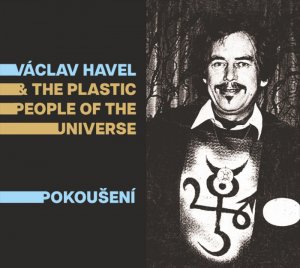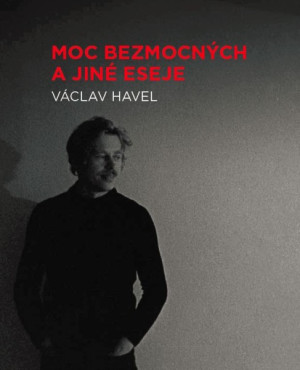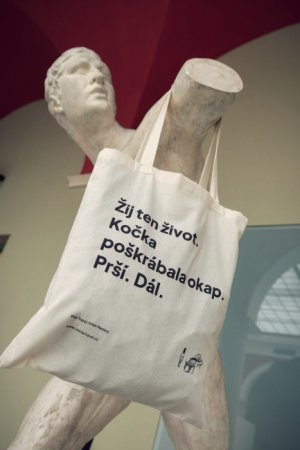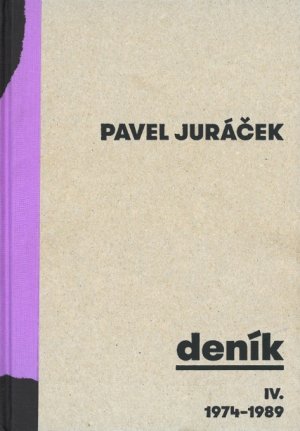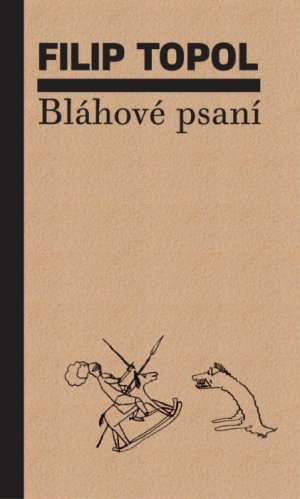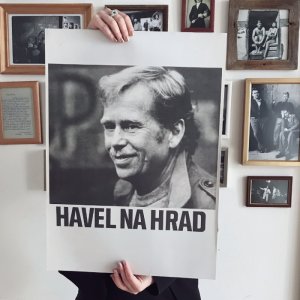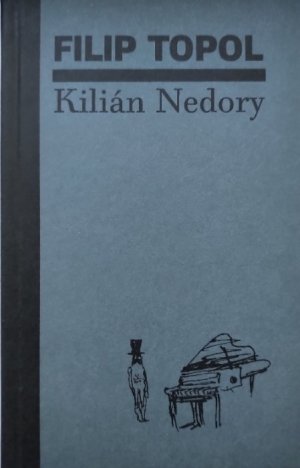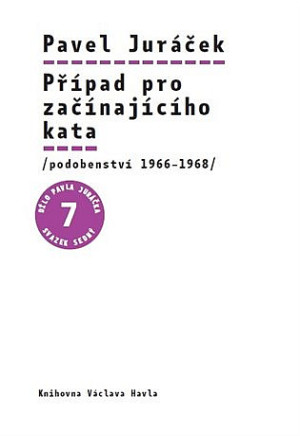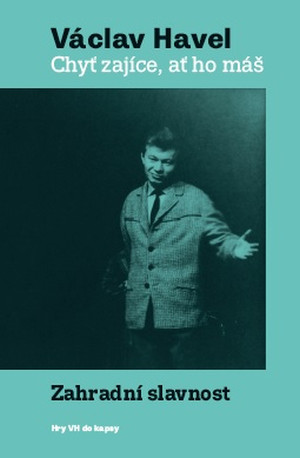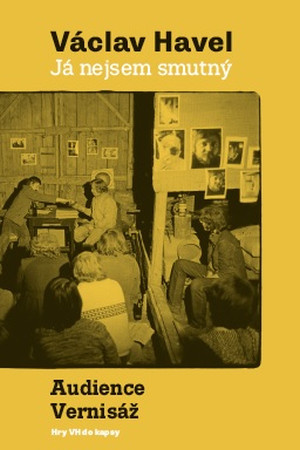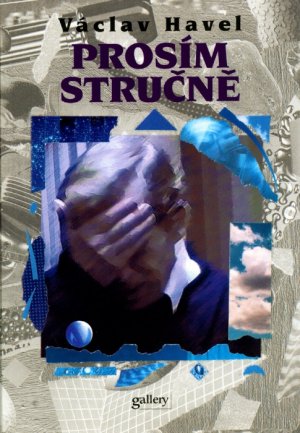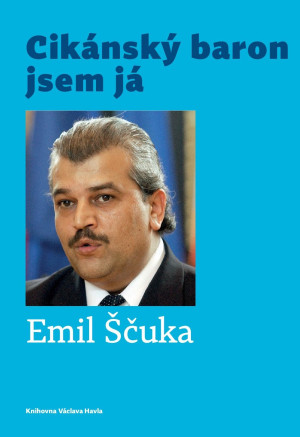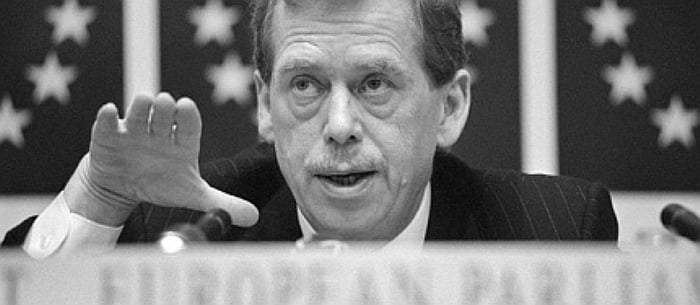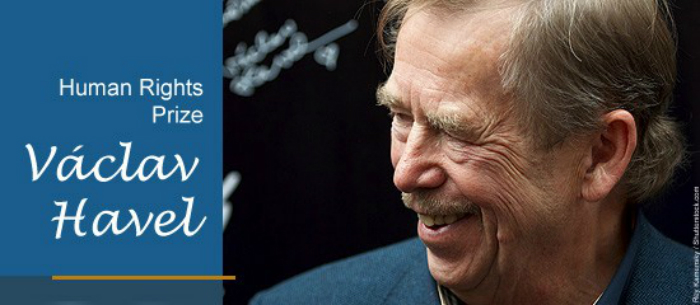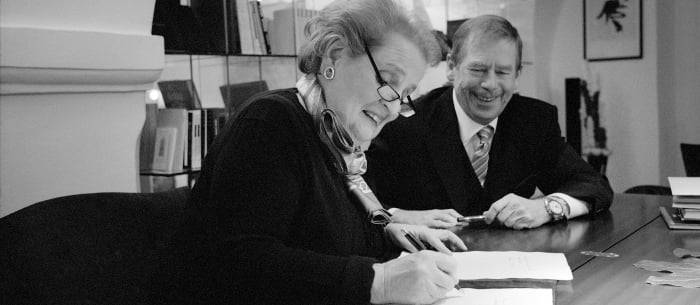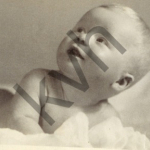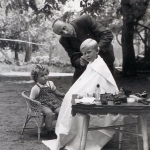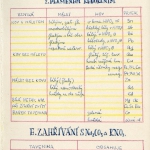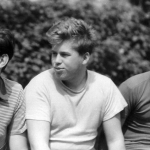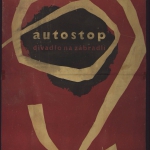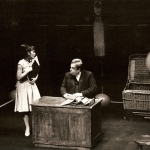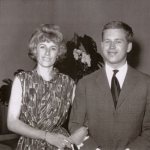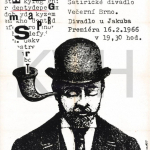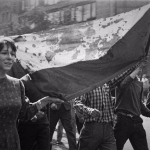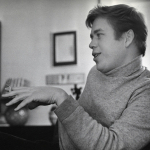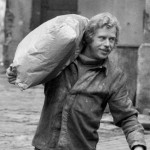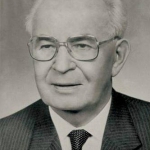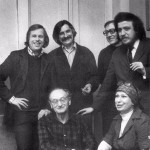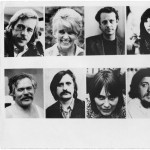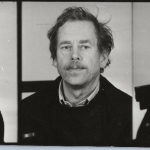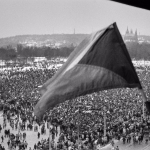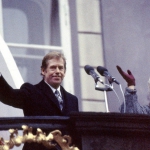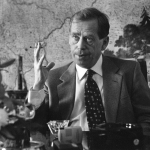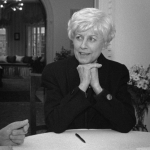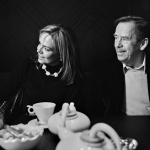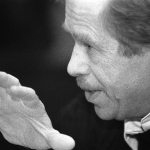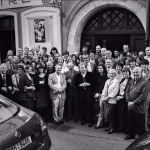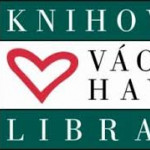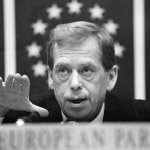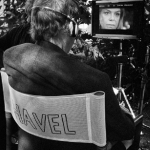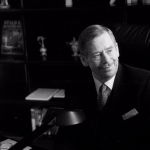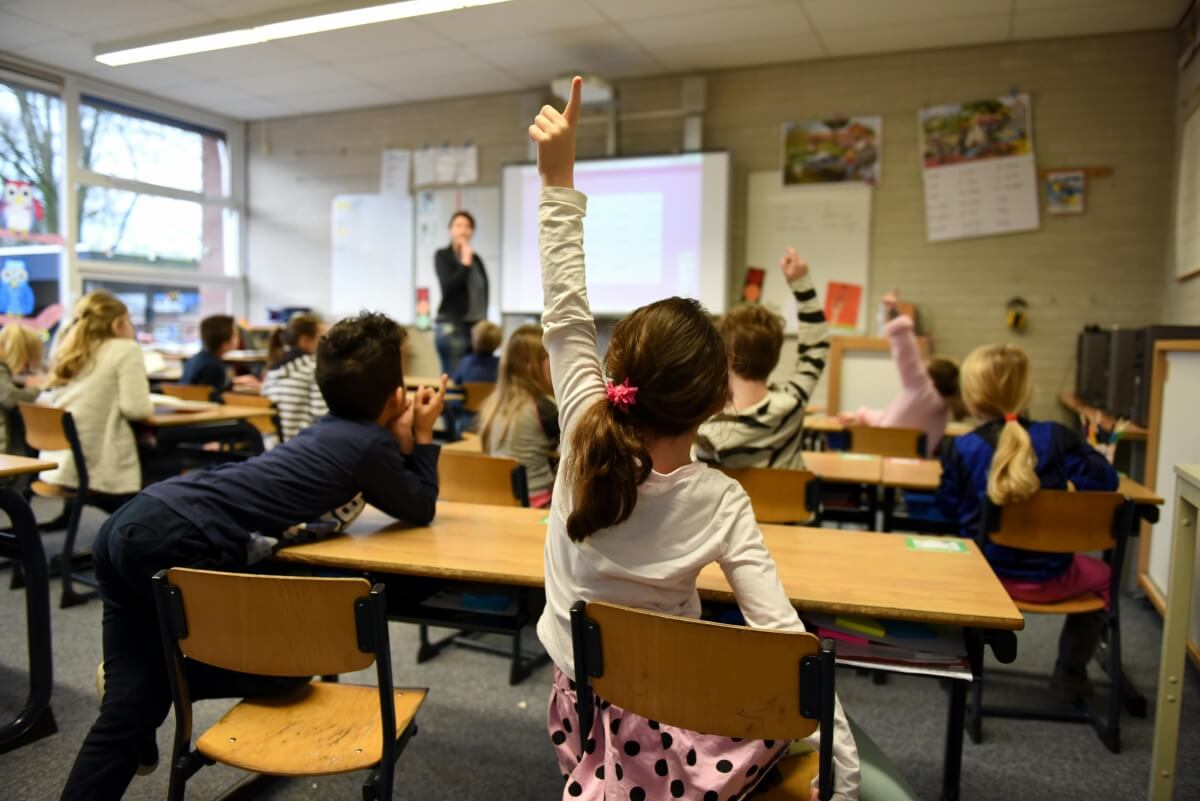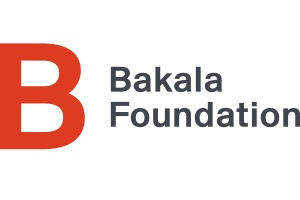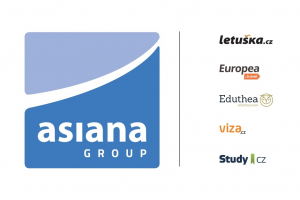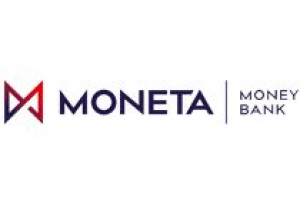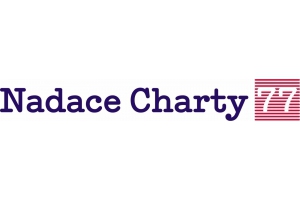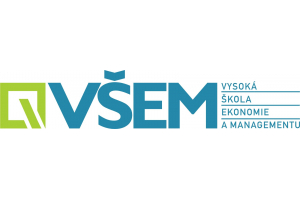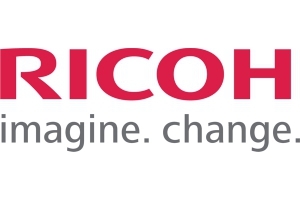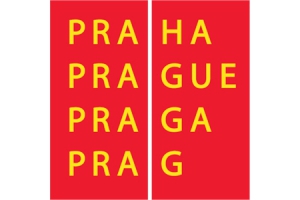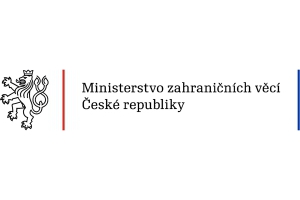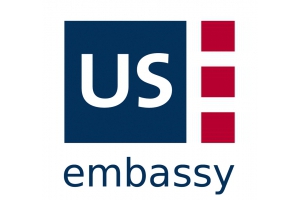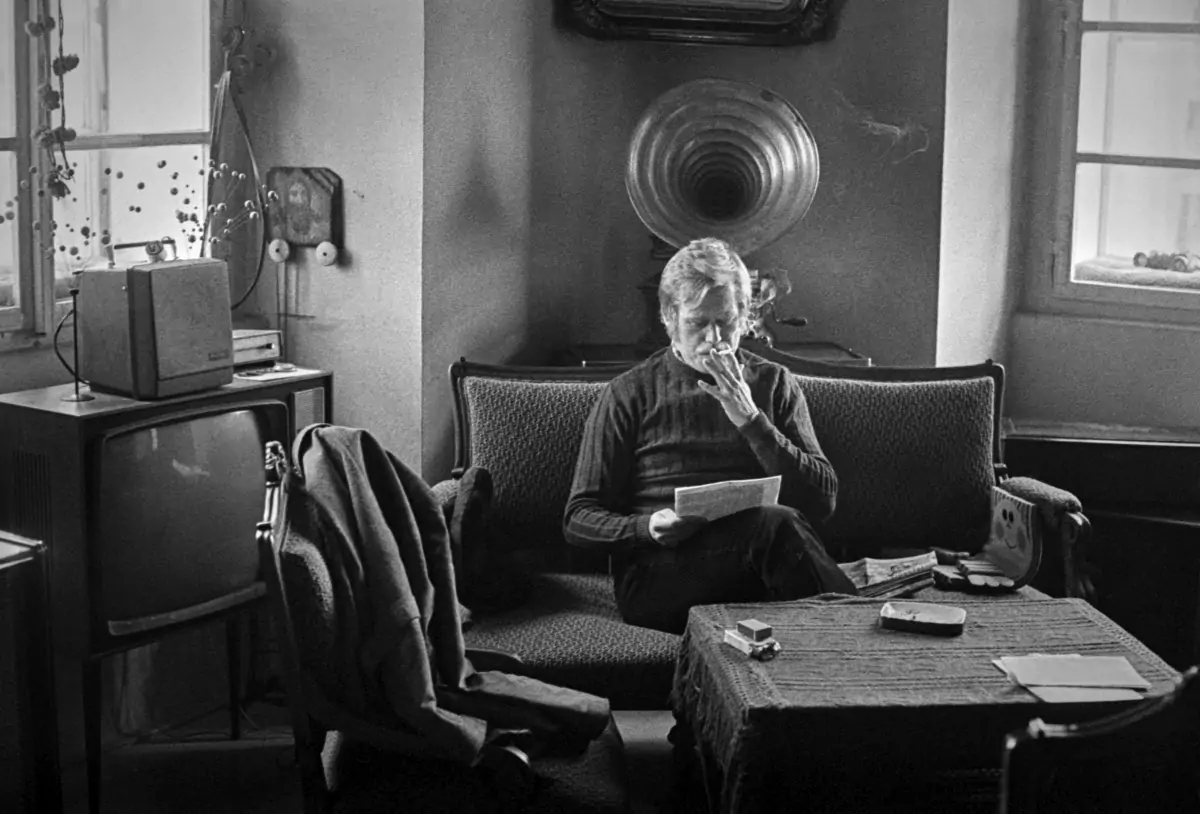
Club / News / Program
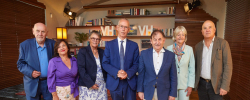
Three candidates shortlisted for the 2023 Václav Havel Prize 05/09/23
The selection panel of the Václav Havel Human Rights Prize, which rewards outstanding civil society action in defence of human rights in Europe and beyond, has today announced the shortlist for the 2023 Award. Meeting in Prague today, the panel – made up of independent figures from the world of human rights and chaired by the President of the Parliamentary Assembly of the Council of Europe (PACE) Tiny Kox – decided to shortlist the following three nominees, in alphabetical order: More
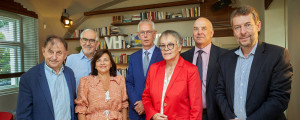
Three candidates shortlisted for the 2022 Václav Havel Human Rights Prize 06/09/22
The discussion among the seven-member jury helmed by the president of the Parliamentary Assembly of the Council of Europe centred on the importance of the issue of human rights during this tense period. The finalists include Vladimir Kara-Murza, a political prisoner and leading Russian democracy campaigner; Ukraine’s 5 AM Coalition, which gathers evidence of human rights abuses stemming from Russia’s invasion of the country; and Hungary’s Rainbow Coalition defending LGBTQIA+ rights. “This year’s selection reflects the central role that human rights play in the current European crisis,” says Michael Žantovský, jury member and executive director of the Václav Havel Library, which bestows the prize in cooperation with the Parliamentary Assembly of the Council of Europe and Nadace Charty 77.
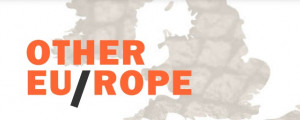
The Other Europe 27/04/22
Dear Friends, After three years we have completed the international project The Other Europe, during which, in cooperation with partner institutions, we have processed and made public recordings of interviews shot in 1987 and 1988 behind the Iron Curtain, and in exile, with important representatives of the opposition and the arts, as well as random citizens. Over those three years we have prepared video, audio and text of 106 interviews in speakers’ native languages and English translation. Despite public health restrictions in the Covid period, we have jointly prepared 16 international conferences and public presentations in six Central and Eastern European states. More
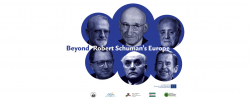
From Schuman to Havel – what next? 16/02/22
The Václav Havel Library is a proud partner of the project Beyond Robert Schuman’s Europe More
Program for January 2014<>
entry-free

Jews in the gulag
- Where: Vaclav Havel Library, Řetězová 7, Prague
- When: December 10, 2013, 19:00 – January 12, 2014, 12:00
Lecture and launch of an exhibition by Adam Hradilek and Jan Dvořák exploring the persecution of Czechoslovak Jews in the Gulag during WWII. The Václav Havel Library is holding the exhibition in cooperation with the Institute for the Study of Totalitarian Regimes.
The exhibition Jews in the Gulag, which is being jointly held by the Václav Havel Library and the Institute for the Study of Totalitarian Regimes, is the second project by the writing team of Adam Hradilk and Jan Dvořák. It follows on from the successful travelling exhibition Czechoslovak Jews in the Gulag, which was seen for the first time in March last year at the Václav Havel Library.
This time the subject of the exhibition is the persecution of Czechoslovak Jews in Soviet Gulag camps during WWII. Research to date, based on interviews with survivors and newly discovered documents from the NKVD archive, will be presented at the exhibition and in accompanying lectures.
At the start of WWII, hundreds of thousands of refugees from the Nazi-occupied countries of Europe sought shelter in numerous states around the world, encountering varying degrees of understanding and openness on the part of local governments. Refugees met a particular approach in the Soviet Union. Hundreds of thousands of refugees who crossed the Soviet border, some of whom found themselves on territory occupied during the war by the USSR, frequently became the victims of its repressive regime.
After the breakup of Czechoslovakia and the Nazi occupation of Bohemia and Moravia in March 1939, thousands of Czechoslovak Jews fled to Soviet territory. In so doing, many escaped Nazi persecution. However, many of them were arrested by the Soviet secret police, the NKVD, and sentenced for illegally crossing the border or “espionage” to long sentences in prison and became slaves in Gulag correctional labour camps, where many perished.
The exhibition is supplemented by documents and items of daily usage by Gulag prisoners.
The items on display were found during an expedition to abandoned camps in Siberia organised by the association Gulag.cz.

Staged reading - Audience
- Where: Montmartre Gallery
- When: January 6, 2014, 19:00 – 21:00
The Václav Havel Library begins the New Year with a new theatrical series. The first of the evenings of staged readings of Václav Havel’s plays will be devoted to Audience, a one-act play set in a brewery that explores absurdity, totalitarianism, rolling barrels, informing and actress Jiřina Bohdalová.
Featuring actors from the Divadlo NaHraně theatre: Martin Severýn and Ondřej Novák
Directed by Šimon Dominik
Hosted by Barbora Šenoltová

Commemorative evening to Natalia Gorbaněvska
- Where: Montmartre Gallery
- When: January 8, 2014, 19:00 – 21:00
An evening dedicated to Natalya Gorbanevskaya - a Russian poet, translator of Polish literature and civil rights activist, who died on 29 November 2012.

Tibet inside and Tibet outside
- Where: Montmartre Gallery
- When: January 9, 2014, 19:00 – 21:00
Evening dedicated to the poetry of Woeser, a Tibetan poet, novelist and blogger. Woeser grew up in Tibet but has lived for the last 10 years under police supervision in Beijing with her husband, the Chinese novelist Wang Lixiong. In June last year she published her most recent book, which mainly focused on why Tibetans immolate themselves. Her previous collection Tibet of the Heart, Tibet of the Mind is just coming out in Czech. The person behind the publication is poet Vít Kremlička; he will present the poems, which have been translated from English by Karla Vrátná and from Chinese by Olga Lomová. Also Zuzana Ondomišiová will participate in the discussion. After the reading there will be a discussion, followed by a cello concert by the Duo Brikcius.
Jana Hradilková will host the event.
The evening is being held in cooperation with the publication Tibetské listy.

Jan Vaněk: And the spirit hovered over me
- Where: Montmartre Gallery
- When: January 14, 2014, 19:00 – February 9, 2014, 12:00
Opening of an exhibition of abstract paintings by Jan Vaněk from the turn of the 1980s and the 1990s.
Jan Vaněk (born 1957, Tábor) was a member of the group Pilky (Radek Brož, Roman Dvořák, Roman Trabura) that were active on the Czech visual art scene in the 1980s. The graduate of a secondary industrial school in České Budějovice, he is a self-taught artist. Alongside Pilky group shows, his work has been displayed in, for instance, the legendary exhibition Popis jednoho zápasu. Česká výtvarná avantgarda 80. let (Description of a Struggle: The Czech Art Avant-Garde of the 1980s ) put on by the Ševčíks, a married couple. He currently works as a construction technician.
This exhibition of Jan Vaněk’s paintings from the turn of the 1980s and the 1990s is more than a mere look back at the past. His large abstract canvasses have nothing in common with either abstraction in the sense of mental abstraction or abstraction that experiments with colour and underlay as a medium.
In his art, Jan Vaněk works with purely Christian symbols and Christian symbolic colours. It could be said that each of his paintings represents the artist’s creed, a declaration of faith, expressed in modern language intersecting with vertical and horizontal lines and overlapping fields of colour. Though he has chosen to employ the abstract language of geometric shapes to express himself, the imperfection of the human world is also present via the author’s brushwork, which contradicts machine precision. The presence of the human element is highlighted by nicks and scars and unintended interventions in the surface of the paintings arising through time; these give the canvases an added level of meaning.
In the central painting Blood and Water, encroachment onto a black square (the centre of Latin cross with blue and red borders) enhances the symbolism of the futility and death of man. It also refers to the crucified body of Christ, from whose pierced side flow water and blood, notionally coursing from several sources on the surface of the canvas. The subject of human immortality, which the cross symbolises, is also present in other pieces. In the painting Resurrection an expanding cone of light, yellow in colour, rises to the sky from a dark horizon, symbolising union with God.
Jan Vaněk has not painted for several years. His work as an artist is recalled by the Marian painting on the façade of his house in Horní Hrachovice, where Bohemia meets Vysočina and where he lives quietly with his family, far removed from the world of art. His late 1980s and early 1990s paintings attest to the artist’s sober and honestly formulated attitude not only to his faith but to the world itself.
Marianna Placáková

PALACH WEEK AT THE VÁCLAV HAVEL LIBRARY
- Where: Faculty of Arts, Charles University, Prague
- When: January 16, 2014, 17:00 – 21:30
January 1989. A brutal police intervention against a peaceful attempt to honour the memory of Jan Palach, who on 16 January 1969 immolated himself on Wenceslas Square in protest at the occupation of Czechoslovakia by Warsaw Pact troops in August 1968. Water cannons, dogs, tear gas – none scare off the demonstrators; instead they are spurred to hold further protests. Unfolding events and growing unrest signal the imminent collapse of the Communist regime. Civic groups link up, petitions to free Václav Havel spread throughout the country, signed not only by artists but by more and more Czechs and Slovaks…
The Václav Havel Library will mark this key event in modern Czechoslovak and Czech history on 16 January 2014 with a memorial ceremony at the main building of the Arts Faculty of Prague’s Charles University, a march on Wenceslas Square, the screening of a film about Agnieszka Holland at Lucerna and a debate with witnesses and direct participants at the Marble Hall at the Lucerna Palace.

Memorial service
- Where: Faculty of Arts, Charles University, Prague
- When: January 16, 2014, 17:00 – 17:30
Silent memorial for Charles University Arts Faculty student Jan Palach. Bring a candle! In cooperation with the Student Council of the Charles University Arts Faculty.
Photography from www.novinky.cz

Procession
- Where: Faculty of Arts, Charles University, Prague
- When: January 16, 2014, 17:30 – 18:30
Procession from the Charles University Arts Faculty to Wenceslas Square.

The Return of Agniezska H.
- Where: Cinema Lucerna, Štěpánská 61, 116 02 Prague 1
- When: January 16, 2014, 18:30 – 20:00
Gala presentation of a documentary film by Krystyna Krauze about Agnieszka Holland
The Oscar-winning Polish director Agnieszka Holland, who has worked with actors such as Meryl Streep and Leonardo di Caprio, studied directing at Prague’s FAMU film school. When she returned to the Czech Republic last year to shoot the extraordinarily powerful serial Burning Bush she acquiesced to the shooting of a documentary that would look back at her studies in the country. And not just her studies: she found a second home here and frequently returns.
Last year, director Krystyna Krauze presented the film Our Vašek exploring relations between the Czech and Polish opposition.
The first 200 guests will receive a free ticket.
The gala screening is taking place in cooperation with the company Artcam and the Lucerna Palace.
Source of photography: Artcam

Jan Palach and Czechoslovakia in 1989
- Where: Marble hall, Lucerna Palace, Štěpánská 61, 116 02 Prague 1
- When: January 16, 2014, 20:00 – 22:00
With the participation of Dana Němcová, Petr Placák, Jiří Suk, Alexandr Vondra and others, the events of 25 years ago are brought back to life via authentic footage from the Original Video Journal. The evening is moderated by Jakub Železný.

Markéta Křížová: the Czech lands, Europe and the world
- Where: Montmartre Gallery
- When: January 20, 2014, 19:00 – 21:00
“Black” and “white” legends of the conquering of America
Lecture in a series conceived by Markéta Křížová (Centre for Ibero-American Studies at the Arts Faculty of Charles University)
Just half a century after Christopher Columbus first put down anchor off the coast of the Caribbean islands, not one aborigine remained there. The majestic empire of the Aztecs and the Incas collapsed under the Spanish invasion literally like a house of cards. European authors have debating the cause of that swift collapse for five centuries. Was the main reason the inability of the American aborigines to react to the technological superiority of the white conquerors? Or was it the cruelty and ruthlessness that contemporary critics of overseas colonisation declare to be an inherent characteristic of European civilisation (and the real source of its powers of expansion)? But can we actually call the collapse of the Indian empires a “collapse”? Was it not a case of “mere” military defeat followed by a change of the ruling class? How far does the victor have the right to go in such a case? We again come to the issue of applying contemporary yardsticks of the “just war” and human rights to historical events.

Launch of audio book of Martin Ryšavý's Vrač
- Where: Montmartre Gallery
- When: January 22, 2014, 19:00 – 21:00
Reading by Martin Ryšavý from his novel Vrač (Revolver Revue, 2010) with original musical accompaniment by Pavel Kopecký and Petr Vokál. The evening is being held in the connection with the release of an audio book version, which is a stand-alone supplement to Revolver Revue no. 93/2013.

Vladimír Merta: Out of time
- Where: Montmartre Gallery
- When: January 23, 2014, 19:00 – 21:00
Musical evening and presentation of the first collected and authorised publication of the song lyrics of Vladimír Merta which, over almost 1,000 pages, maps the sung poetry of one of the most important Czech songwriters.
The volume Mimo čas (Out of Time) gathers all of Merta’s lyrics from 1966 to today and presents this distinctive and renowned singing poet. At the same time, it provides readers with an impressive lyrical testimony about the writer’s life, views and civic standpoints over a period of almost 50 years.
In the presence of the writer, his guitar and other guests, the book will be introduced by editors Jan Šulc and Lubomír Houdek.
The evening is being held in cooperation with the publishers Galén.

Judita Matyášová: Friendship despite Hitler
- Where: Montmartre Gallery
- When: January 28, 2014, 19:00 – 21:00
Journalist Judita Matyášová’s book maps the fates of 80 Czech children who reached Denmark at the start of the war and in 1943 escaped to Sweden. They later lost touch with one another for 70 years, before the writer decided to search out the “children”, today in their 90s, and trace their stories.
However, the book Přátelství navzdory Hitlerovi (Friendship Despite Hitler) is not just about their individual fates but about the author’s detective work in tracking them down around the world. We learn what it is like when a journalist/sleuth uncovers new details that put them on the trail of further stories. And what it is like when they uncover long forgotten secrets and have to decide whether to air them or let them lie.

Ezra Pound and his Cantos
- Where: Montmartre Gallery
- When: January 29, 2014, 19:00 – 21:00
One the occasion of the publication of the second and third volumes of a great 20th century epic, Ezra Pound’s Cantos (Cantos II, XXXI–LI, Cantos III, China Cantos LII–LXI) , the translator Anna Kareninová explores the concept, levels and style of this monumental composition comprising 117 songs. The evening will also feature recordings of Pound reading his poems and photos portraying places reflected in the Cantos, while a comparison of the source texts and their transformations into song will reveal something of Pound’s poetics.
Volumes of Ezra Pound translated by Anna Kareninova are published by Atlantis (http://www.atlantis-brno.cz/inshop/autori/pound-ezra/)

Eugen Brikcius: And his body became a word
- Where: Montmartre Gallery
- When: January 31, 2014, 19:00 – 21:00
Prague launch of selected volumes, which has just been released by the Brno publishing house Větrné mlýny, from this “eugenius” poet and philosopher.
In his work, Eugen Brikcius, who will present the book, “sings the praises of the senses and sensuality without letting go of regard for the horizon of the soul and the vanishing point of reason”. Surprises guaranteed.
The evening is being hosted by Petr Minařík, Větrné mlýny’s editor in chief.
Havel Channel
Havel Channel je audiovizuální projekt Knihovny Václava Havla, jehož cílem je šířit myšlenkový, literární a politický odkaz Václava Havla, bez ohledu na vzdálenost, zeměpisné hranice či nouzové stavy. Jeho páteř tvoří debaty, vzdělávací projekty a rozhovory. Velký prostor je věnován též konferencím, autorským čtením, záznamům divadelních inscenací a koncertům. Audiovizuální projekt Knihovny Václava Havla Havel Channel se uskutečňuje díky laskavé podpoře Karel Komárek Family Foundation.
Publications / E-shop
The central focus of the Library’s publishing programme is the life and work of Václav Havel, his family and close collaborators and friends. For clarity, the programme is divided into six series: Václav Havel Library Notebooks, Václav Havel Library Editions, Student Line, Talks from Lány, Václav Havel Documents, Works of Pavel Juráček and Václav Havel Library Conferences. Titles that cannot be incorporated into any of the given series but which are nonetheless important for the Library’s publishing activities are issued independently, outside the series framework.
Diary IV. 1974–1989
399,- CZK
Foolish Writing
299,- CZK
Havel to the Castle
149,- CZK
Kilián Nedory
199,- CZK
Case for a Novice Headsman
199,- CZK
I am not sad. Audience & Vernissage
129,- CZK
To the Castle and Back
249,- CZK
I am the Gypsy Baron
299,- CZK
Conferences & prizes
Václav Havel European Dialogues
The Václav Havel European Dialogues is an international project that aims to initiate and stimulate a discussion about issues determining the direction of contemporary Europe while referring to the European spiritual legacy of Václav Havel. This idea takes its main inspiration from Václav Havel’s essay “Power of the Powerless”. More than other similarly focused projects, the Václav Havel European Dialogues aims to offer the “powerless” a platform to express themselves and in so doing to boost their position within Europe.
The Václav Havel European Dialogues is planned as a long-term project and involves cooperation with other organisations in various European cities. Individual meetings, which take the form of a conference, are targeted primarily at secondary and third-level students, as well as specialists and members of the public interested in European issues.
Prague 2022Olomouc Prague 2023PragueMnichov 2020Brussels 2020Prague 2019Brussels 2019Prague 2018Brussels 2018Europe at the Crossroads (e-book)Prague 2017Brussels 2017Prague 2016Brussels 2016Prague 2015Brussels 2015Brussels 2014Berlin 2014Prague 2014 - J. GauckBruges 2014Prague 2014
Václav Havel Human Rights Prize
The Václav Havel Human Rights Prize is awarded each year by the Parliamentary Assembly of the Council of Europe (PACE) in partnership with the Václav Havel Library and the Charta 77 Foundation to reward outstanding civil society action in the defence of human rights in Europe and beyond.
11th Year of the Prize (2023)10th Year of the Prize (2022)9th Year of the Prize (2021)8th Year of the Prize (2020)7th Year of the Prize (2019)6th Year of the Prize (2018)5th Year of the Prize (2017)4th Year of the Prize (2016)3rd Year of the Prize (2015)2nd Year of the Prize (2014)1st Year of the Prize (2013)History of the prize
Havel - Albright Transatlantic Dialogues
Since the first Václav Havel Transatlantic Dialogues at GLOBSEC and FORUM 2000 conferences last year, we have lost another stalwart advocate of the transatlantic bond and of the need to face threats to democracy and international order together on both sides of the Atlantic, the former US Secretary of State Madeleine Albright. In view of the close bond between Václav Havel and Madeleine Albright and, after Havel's death, between the Secretary and the Library, the Václav Havel Library, with the approval of Madeleine Albright's family, renamed and rebranded the program as The Havel-Albright Transatlantic Dialogues (HATD), after the two major figures with roots in Central Europe who have personified the bond. Together, Václav Havel and Madeleine Albright symbolize the transatlantic relationship and the fundamental values underpinning it perhaps better than any other two people in recent history. The upcoming Dialogues “The Indispensable Woman: The Legacy of Madeleine K. Albright”, at the FORUM 2000 conference on September 1, and at the “Havel and our Crisis” conference at Colby College, ME, on September 28, will thus become venues for a well-deserved tribute to the pair we all respected and admired.
Transatlantic Dialogues 2021Transatlantic Dialogues 2022HATD 2022 Prague
Václav Havel
Václav Havel
* 5. 10. 1936 Praha
† 18. 12. 2011 Hrádeček u Trutnova
- spisovatel a dramatik, publicista a filozof
- jeden z trojice prvních mluvčích Charty 77
- vůdčí autorita československé společenské změny v listopadu 1989
- poslední prezident Československa a
- první prezident České republiky
- celoživotní zastánce lidských práv a svobod doma i ve světě.
Educational projects
Archive / Documentation centre / Research projects
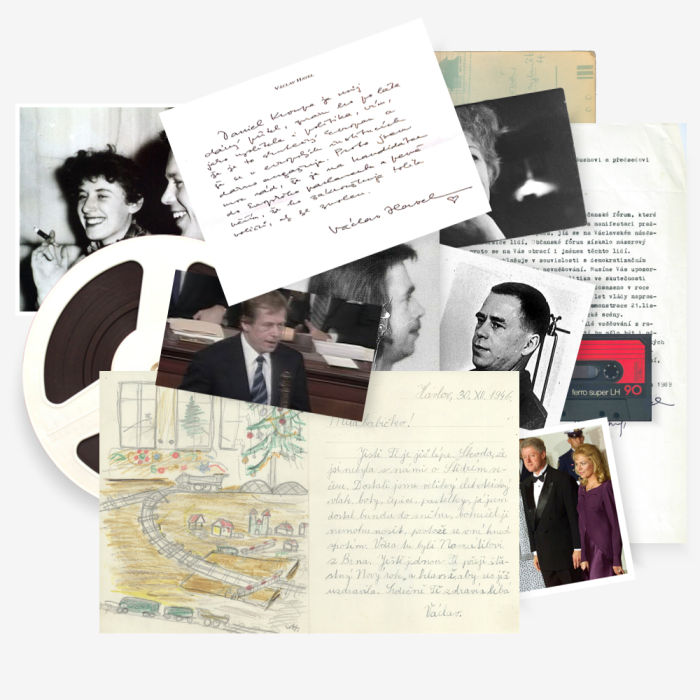
The Václav Havel Library is gradually gathering, digitizing, and making accessible written materials, photographs, sound recordings and other materials linked to the person of Václav Havel.
- 71258 records in total
- 28185 of events in the VH's life
- 2831 of VH's texts
- 2125 of photos
- 403of videos
- 568of audios
- 6599of letters
- 15101of texts about VH
- 8275 of books
- 40808of bibliography records
Access to the database of the VHL’s archives is free and possible after registering as a user. Accessing archival materials that exist in an unreadable form is only possible at the reading room of the Václav Havel Library, Ostrovní 13, 110 00 Prague 1, every Tuesday (except state holidays) from 9:00 to 17:00, or by prior appointment.
We will be glad to answer your queries at archiv@vaclavhavel-library.org.
Sign in (registered users only)
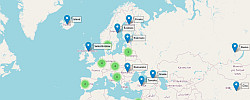
Havel in a nutshell
The virtual exhibition Václav Havel in a Nutshell places the life story of Václav Havel in the broader cultural and historic context in four chronologically distinct chapters with rich visual accompaniment. The exhibition is supplemented by the interactive map Flying the World with Václav Havel, which captures in physical form Havel’s global “footprint”.
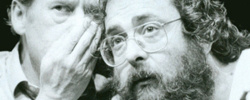
Vladimir Hanzel's revolution
Collage of recollections, images and sound recordings from Vladimír Hanzel, President Václav Havel’s personal secretary, bringing the feverish atmosphere of the Velvet Revolution to life.
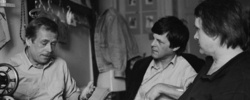
Václav Havel Interviews
A database of all accessible interviews given to print media outlets by the dramatist, writer and political activist Václav Havel between the 1960s and 1989. The resulting collection documents the extraordinary life story of an individual, as well as capturing a specific picture of modern Czechoslovak history at a time when being a free-thinker was more likely to lead to jail than an official public post.
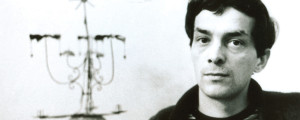
Pavel Juráček Archive
The Pavel Juráček Archive arose in February 2014 when his son Marek Juráček handed over six banana boxes and a typewriter case from his father’s estate to the Václav Havel Library. Thousands of pages of manuscripts, typescripts, photographs, documents and personal and official correspondence are gradually being classified and digitalised. The result of this work should be not only to map the life and work of one of the key figures of the New Wave of Czechoslovak film in the 1960s, but also to make his literary works accessible in the book series The Works of Pavel Juráček.
The aim of the Václav Havel Library is to ensure that Pavel Juráček finds a place in the broader cultural consciousness and to notionally build on the deep friendship he shared with Václav Havel. Soon after Juráček’s death in 1989 Havel said of him: “Pavel was a friend of mine whom I liked very much. He was one of the most sensitive and gentle people I have known – that’s why I cannot write more about him.”
All about Library
The Václav Havel Library works to preserve the legacy of Václav Havel, literary, theatrical and also political, in particular his struggle for freedom, democracy and the defence of human rights. It supports research and education on the life, values and times of Václav Havel as well as the enduring significance of his ideas for both the present and future.
The Václav Havel Library also strives to develop civil society and active civic life, serving as a platform for discussion on issues related to the support and defence of liberty and democracy, both in the Czech Republic and internationally.
The main aims of the Václav Havel Library include
- Organizing archival, archival-research, documentary, museum and library activities focused on the work of Vaclav Havel and documents or objects related to his activities, and carries out professional analysis of their influence on the life and self-reflection of society
- Serving, in a suitable manner, such as through exhibitions, the purpose of education and popularisation functions, thus presenting to the public the historical significance of the fight for human rights and freedoms in the totalitarian period and the formation of civil society during the establishment of democracy
- Organizing scientific research and publication activities in its areas of interest
Podpořte nás
We are well aware that freedom and democracy must be nurtured. Here at Ostrovní 13, but also on the audiovisual platform Havel Channel, we strive to do so through our own educational programmes, talks, discussion meetings, books, exhibitions, concerts, theatre performances. We honour Václav Havel's legacy and wish that the Library be a living organism and open to all. That is why our programme is free of charge for everyone. This would not be possible without regular financial support from our supporters. Become one of them...
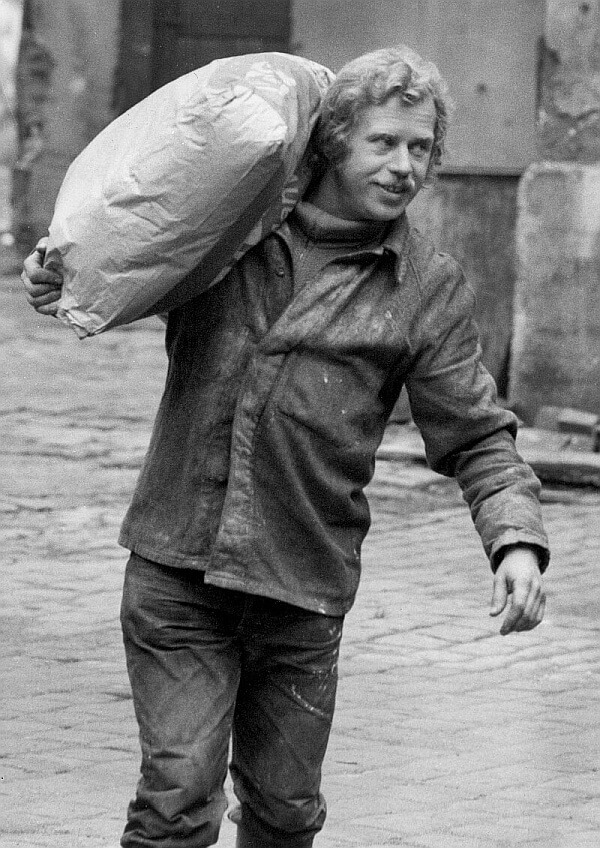
Support us with a financial donation
Does our work make sense to you and do you want to support the activities of the Vaclav Havel Library?
You can easily make a one-time payment by scanning the QR code.
Would you like to contribute regularly? Then we invite you to become a member of the Friends of the Vaclav Havel Library Club. What are the benefits of membership? Find out more.
Help us expand the archive
The Vaclav Havel Library manages an archive of writings, documents, photographs, video recordings and other materials related to the life and work of Vaclav Havel. This archive is predominantly in digital form. If you or someone close to you owns any original texts, correspondence, photographs, speeches or any other work by Vaclav Havel, we would be grateful if you could contact us.
You can donate in other ways too
Supporting a specific charitable or public benefit organization whose activities you appreciate or have been supporting for a long time is also possible through a will. This form of donation is quite common abroad, but in the Czech Republic this tradition is only just taking root.
Share information about us
The Vaclav Havel Library is open to media and promotional cooperation, mutual sharing of links, publishing our banners or information about our events.
For more information, please contact us.
Donations have their rules
At the Vaclav Havel Library, we uphold a transparent, responsible and ethical way of dealing with all those who contribute to fulfilling our purpose and implementing our strategy. Our code of ethics summarizes the basic rules of donations.
Get involved in volunteering
Would you like to get involved as a volunteer? That's great. We welcome anyone who wants to help our work.








